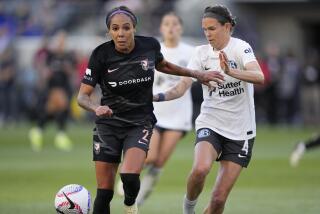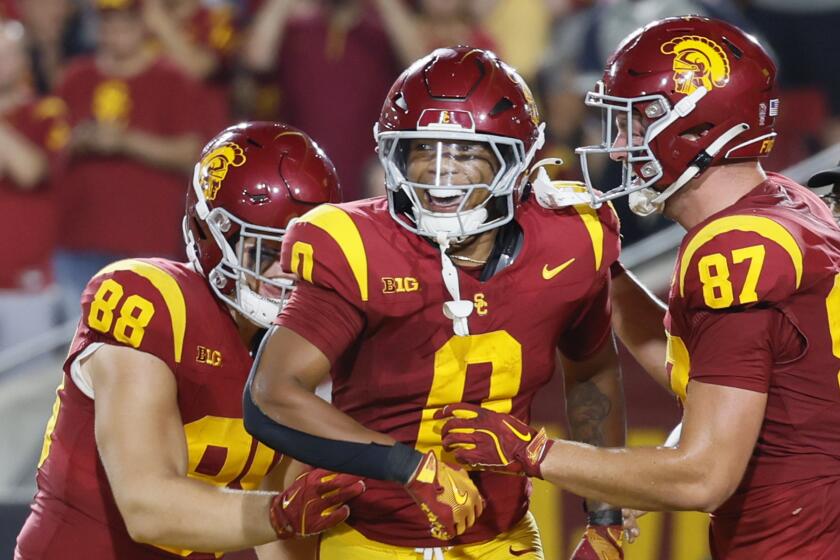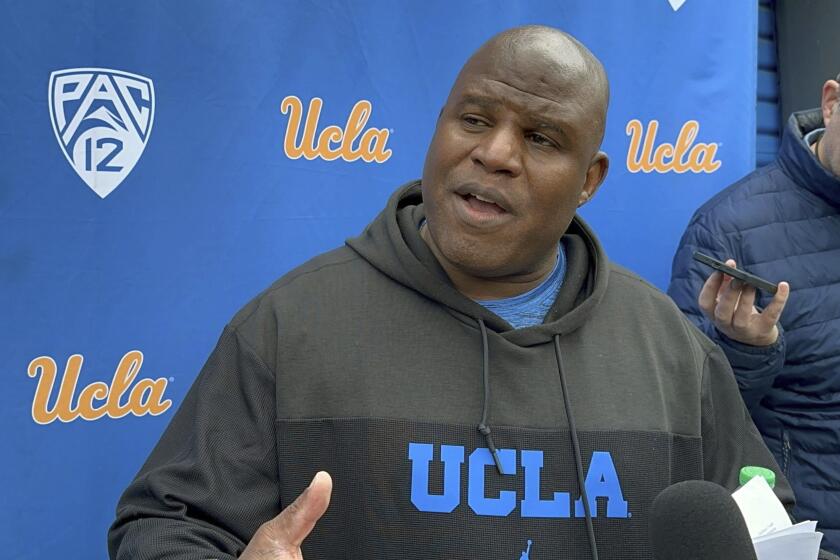NHL players expected to present counterproposal to owners
A day after jolting stalled labor talks and steering public sentiment toward its side by making an offer that would preserve a full season, the NHL scored another coup Wednesday by releasing the complete text of its proposal. But the terms won little favor among locked-out players, who are expected to present a counterproposal when the sides meet Thursday in Toronto.
“Simply put, the owners’ new proposal, while not quite as Draconian as their previous proposals, still represents enormous reductions in player salaries and individual contracting rights,” Donald Fehr, the NHLPA’s executive director, told players in a letter obtained by Canada’s TSN.
“As you will see, at the 5% industry growth rate the owners predict, the salary reduction over six years exceeds $1.6 billion. What do the owners offer in return?”
An especially contentious provision is a “make whole” clause in which the NHL proposes to eventually pay players the full value of signed contracts even though they must take a big initial escrow bite. The repayments would come out of players’ share in future years.
“It is players paying players, not owners paying players,” Fehr said in his letter. “That is, players are ‘made whole’ for reduced salaries in one year by reducing their salaries in later years.”
He added, “The players’ share is reduced to 50% from 57% immediately this season. This is a reduction in the share of 12.3%. On last year’s revenue numbers, this would mean that players’ salaries would be cut by about $231 million.”
Citing a need to clarify incomplete descriptions of its offer, the NHL broke from its usual tight-lipped negotiating strategy to post the proposal on its website. Besides outlining a 50-50 split of hockey-related revenue throughout a six-year deal that has a mutual option for a seventh year, it confirmed many previously reported details.
Among them are postponing unrestricted free agency until a player is 28 or has eight seasons’ experience, delaying salary arbitration until after a player’s’ fifth season, increasing the NHL’s revenue-sharing commitment to $200 million a year, limiting entry-level contracts to two years, capping all contracts at five years and limiting a year-to-year salary variance on contracts to 5% of the value of the first year of that contract.
The salary limit for the 2012-13 season would be $59.9 million and the floor would be $43.9 million. However, “transition rules” would permit payrolls to hit $70.2 million this season.
Some new details became clear. Notable were the elimination of reentry waivers, limits on the salary-cap charge a team can retain when trading a player, a provision that would prevent teams from saving cap space by burying high-priced players in the minor leagues, and making the Ducks, New York Islanders and New Jersey Devils eligible for revenue sharing from a pool half-funded by the top 10 revenue-grossing clubs. Those three teams had been excluded because they were classified as located in large markets.
The NHL pinpointed a deadline of Oct. 25 for a new agreement and said a delay “would necessarily leave us with an abbreviated season and will require the cancellation of signature NHL events.” The economic damage of losing events such as the Jan. 1 Winter Classic “will obviously necessitate changes to this offer in the event we are unsuccessful in saving a full season.”
The league also said it won’t change previously negotiated agreements on what constitutes hockey-related revenue but wants to clarify “mutually identified ambiguities.” That raised a red flag for Fehr.
“It is not immediately clear what this means,” he said in his letter, “but so far all of their ideas in this regard have had the effect of reducing HRR [hockey-related revenues], and thereby lowering salaries.”
A shortened season would be possible if there’s no agreement by Oct. 25.
twitter.com/helenenothelen
More to Read
Go beyond the scoreboard
Get the latest on L.A.'s teams in the daily Sports Report newsletter.
You may occasionally receive promotional content from the Los Angeles Times.










